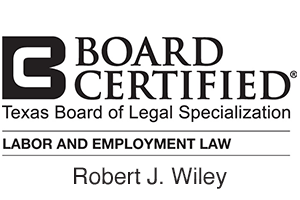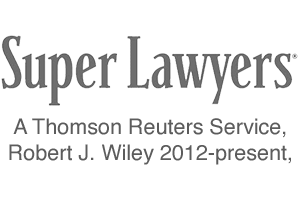in Austin, Texas
Private Whistleblowers
Rob Wiley: My name is Rob Wiley and today I am going to be speaking with Austin employment lawyer, Colin Walsh, about whistleblowers. So, people are going to work for companies. They’re learning the company’s secrets. What’s going on there. They find something that’s illegal, that the company shouldn’t be doing. Are there things that an employee can do in that situation to protect their job or to protect themselves from retaliation?
Colin Walsh: Yes. The employee can hire an employment lawyer and report the unlawful conduct, become a whistleblower, essentially.
Rob Wiley: So Texas as a state doesn’t have a lot of protections for whistleblowers but one thing that the court has recognized is something called a Sabine Pilot cause of action which is a way to go and protect your rights. Sabine Pilot is just the name of the case that created this right. But what does Sabine Pilot say for employees? What protections does it give them in the workplace?
Colin Walsh: Sabine Pilot says that an employer cannot fire an employee for refusing to engage in an illegal act. It was created by courts and it has been narrowly construed.
Rob Wiley: And, and this is an area where I think it really is particularly important to talk to a lawyer just because there are so many different whistleblower laws that are out there from publicly traded companies. There are SEC whistleblower laws. There is Sarbanes Oxley that got passed after Arthur Anderson and Enron had defrauded so many different investors. Any time there’s government fraud that’s going on there was a kind of action called Qui Tam which is a Latin word about defrauding the government and actually comes all the way from English common law back when we were under that system. So there’s just so many different laws that protects somebody. It’s important that you make a complaint in a way that’s going to set up a retaliation complaint. And of course, retaliation has three elements. Do you want to talk about what those are?
Colin Walsh: Yes. The three elements of a retaliation complaint would be engaging in a protected activity, making the complaint an adverse action and then, the protected activity caused the adverse action.
Rob Wiley: And retaliation claims are often very good especially in private whistleblower cases because if we’re fighting one there’s a good chance that we can prove without question that the employee engaged in protective activity. We can prove that they got fired or they suffered adverse employment action which means the only thing left that we have to prove is causation. We’re going in with two of our three elements already proved. I think the only, other thing about so many of these whistleblower laws is that we have a strong public policy in this country in favor of whistleblowers. So a lot of times those whistleblower laws come with finder’s fees or with awards for people that, that reported this action. And that’s true with the SEC violations and also with Qui Tam cases where you can get a percentage of what is collected, ah, by the government. And some of those cases have been in the millions and millions of dollars being awarded, ah, to the whistleblower.







